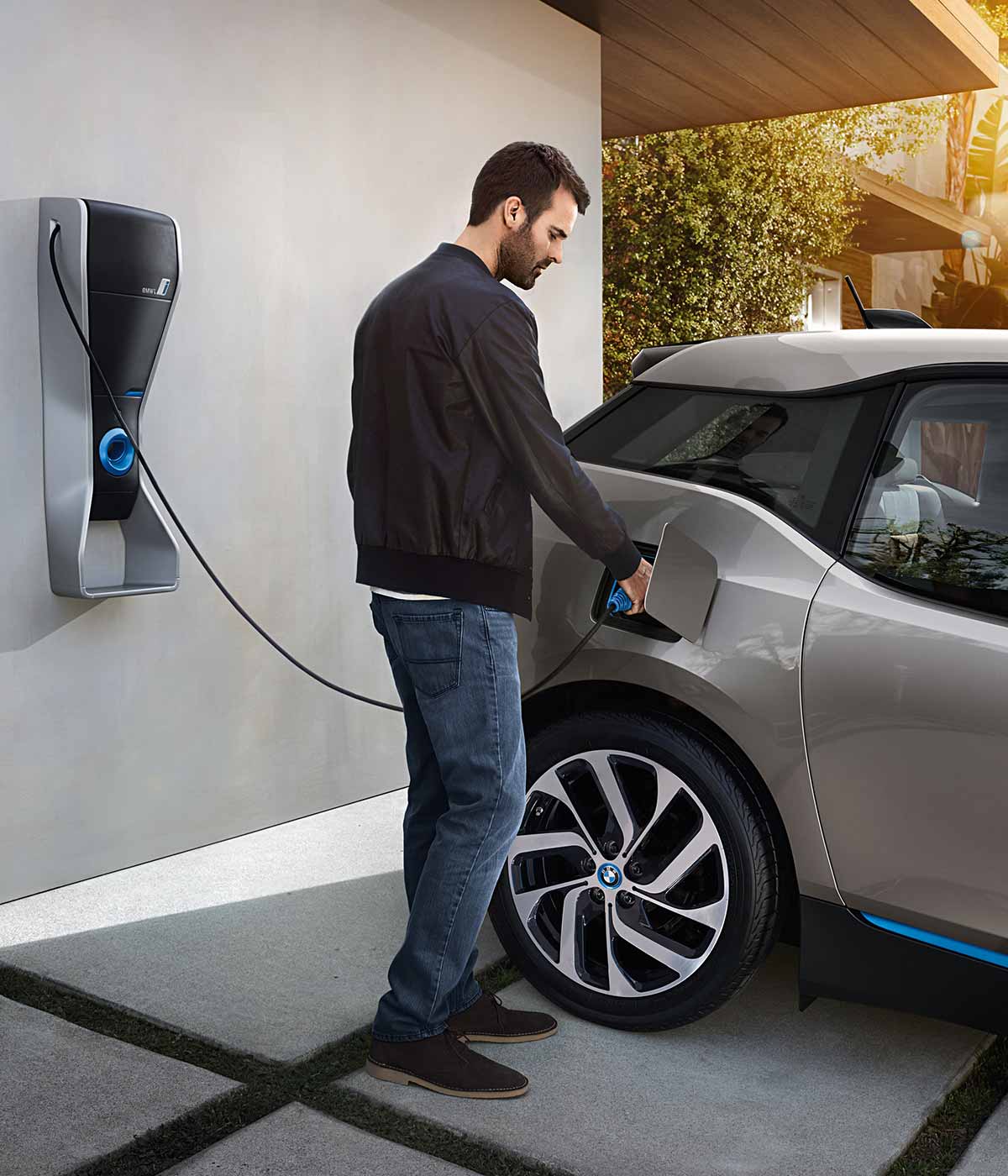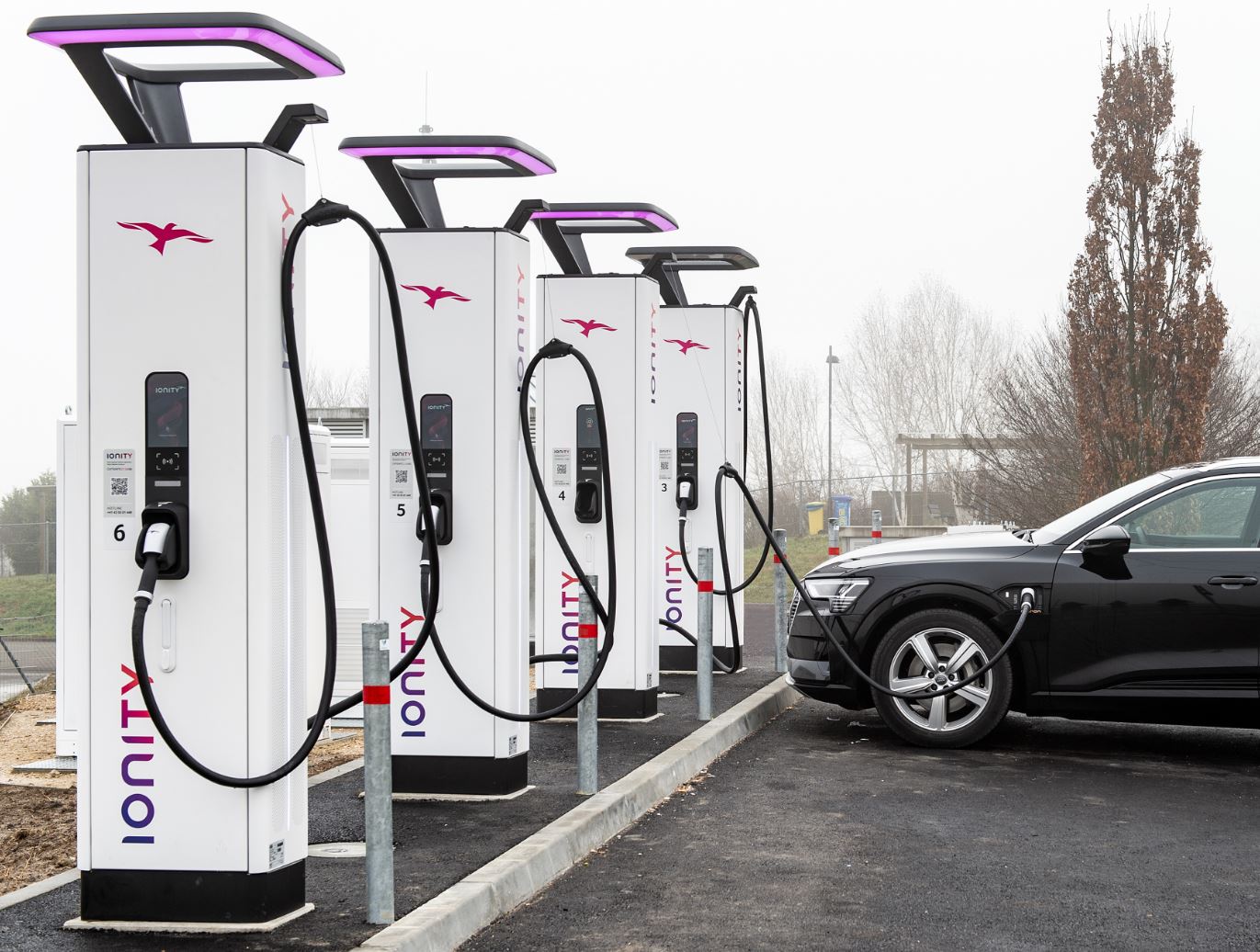Home Charging
Because residential charging is convenient and inexpensive, most plug-in electric vehicle (also known as electric cars or EVs) drivers do more than 80% of their charging at home. Charging in a single-family home allows you to take advantage of low, stable residential electricity rates. Charging at a multi-family residential complex, like a condo or apartment, is possible, but can be complex and more similar to public charging.
Costs of charging at home
Fuel costs for EVs are lower than for conventional vehicles. Because plug-in hybrid electric vehicles have smaller batteries, each individual charge costs even less. If you charge primarily at night and your utility offers special off-peak rates, your costs may be even lower. Find out if your utility offers any special incentives for EV owners. In The Netherlands, the average cost of charging any EV is around 22 cents per kWh. Let's say your electric car has an empty battery and approximately 24 kWh battery capacity. In most cases, your car should be able to reach approximately 150 km with a single charging session. Charging your EV would amount to a total of 24 x 0.22 = 5.28 EUR. The power consumption per km wouldn't be more than 0.03 EUR.
Types of equipment to use at home
Home charging can use either the relatively simple Level 1 electric vehicle supply equipment (EVSE) or the slightly more complex Level 2 EVSE. Charging with Level 2 EVSE is faster and can be more convenient, but requires special equipment that is more expensive to install than Level 1. It's recommended that most electric vehicle buyers, especially those purchasing a plug-in hybrid (PHEV) with a small battery, start with just the included cord, rather than invest in a 240-volt, or Level 2, wall-mounted charger.
Costs of charging at home
Fuel costs for EVs are lower than for conventional vehicles. Because plug-in hybrid electric vehicles have smaller batteries, each individual charge costs even less. If you charge primarily at night and your utility offers special off-peak rates, your costs may be even lower. Find out if your utility offers any special incentives for EV owners. In The Netherlands, the average cost of charging any EV is around 22 cents per kWh. Let's say your electric car has an empty battery and approximately 24 kWh battery capacity. In most cases, your car should be able to reach approximately 150 km with a single charging session. Charging your EV would amount to a total of 24 x 0.22 = 5.28 EUR. The power consumption per km wouldn't be more than 0.03 EUR.
Types of equipment to use at home
Home charging can use either the relatively simple Level 1 electric vehicle supply equipment (EVSE) or the slightly more complex Level 2 EVSE. Charging with Level 2 EVSE is faster and can be more convenient, but requires special equipment that is more expensive to install than Level 1. It's recommended that most electric vehicle buyers, especially those purchasing a plug-in hybrid (PHEV) with a small battery, start with just the included cord, rather than invest in a 240-volt, or Level 2, wall-mounted charger.

You should consult your EV manufacturer guidance for information about the required charging equipment and understand the specifications before purchasing equipment and electric services. In general, check with your utility company and a trusted electrical contractor and get cost estimates before installing EVSE or modifying your electrical system.
Level 1 EVSE
Level 1 EVSE provides charging through a 120 volt (V) AC plug. Level 1 adds about 2 to 5 miles of range to a vehicle per hour of charging time, making it suitable for plug-in hybrid electric vehicles and depending on your circumstance, even some all-electric vehicles. Charging with Level 1 EVSE will not require any special equipment besides an outlet, but does require a dedicated branch circuit. Before plugging an EV into any outlet, be sure that the circuit does not supply other appliances such as refrigerators or lights. For the connector, nearly all EVs come with a portable Level 1 EVSE cordset, which has a standard three-prong household plug on one end for the outlet and a standard J1772 connector for the vehicle.
Level 2 EVSE
Level 2 EVSE provides charging through a 240 V AC plug. Level 2 adds about 10 to 60 miles of range to a vehicle per hour of charging time, making it suitable for all EVs.
Charging on the Go
Nowadays it is possible to charge your EV on the street, at a patrol station and at any public parking facility like a shopping mall, restaurant, hotel, hospital etc. Your access and usage of these public charging stations depends on whether your charge card is interoperable. If "interoperability" is activated, you have the power to charge via the various providers of these charging station.
How to pay for public charging
Payment for a public charger (if it isn't free) is usually done via a contactless card payment, smartphone app or RFID card, there are no kiosks to pay at and the payment process is completed before charging begins. Public chargepoints at supermarkets or car parks are often free to use for the duration of your stay.
How to pay for public charging
Payment for a public charger (if it isn't free) is usually done via a contactless card payment, smartphone app or RFID card, there are no kiosks to pay at and the payment process is completed before charging begins. Public chargepoints at supermarkets or car parks are often free to use for the duration of your stay.

How long does it take to charge my EV
The charging time of your EV depends on: your current level of battery charge, your battery capacity, your charging station's capacity and settings, as well as the capacity of your charging station's energy source (e.g. whether it's at home or an office building). The average time it takes to charge is 6-8 hours using a regular socket, 1-4 hours at a charging station and around 20 minutes when using a fast Charge staion.
Commercial EV charging providers
There are several commercial charging providers - not like some of the public serivces provided at supermarkets or car parks - offer high quality, fast charge serivces. Examples are FastNet, New Motion, etc.
Click on the Map to explore a charging point next to you!
The charging time of your EV depends on: your current level of battery charge, your battery capacity, your charging station's capacity and settings, as well as the capacity of your charging station's energy source (e.g. whether it's at home or an office building). The average time it takes to charge is 6-8 hours using a regular socket, 1-4 hours at a charging station and around 20 minutes when using a fast Charge staion.
Commercial EV charging providers
There are several commercial charging providers - not like some of the public serivces provided at supermarkets or car parks - offer high quality, fast charge serivces. Examples are FastNet, New Motion, etc.
Click on the Map to explore a charging point next to you!
Business Charging
A growing number of companies are offering EV charging facilities at the workplace. Most of them offer the service free of charge supporting a greener, better world. According to recent research most millennials believe working for an environmentally and socially responsible company is essential, and 83% of millennials would be more loyal to a company supporting the environment.
Building a sustainable brand
Offering EV charging services to your employees and customers, also provides your company with a better brand image as a growing number of consumers are now choosing to do business with brands they believe are doing social or environmental good.
Building a sustainable brand
Offering EV charging services to your employees and customers, also provides your company with a better brand image as a growing number of consumers are now choosing to do business with brands they believe are doing social or environmental good.

Lower your carbon footprint
Changing your conventional company fleet into an electric fleet, you will of course naturally significantly lower your carbon footprint, in turn lowering carbon emission tax costs. Your employees will also benefit from tax reduction and save on fuel cost.
Changing your conventional company fleet into an electric fleet, you will of course naturally significantly lower your carbon footprint, in turn lowering carbon emission tax costs. Your employees will also benefit from tax reduction and save on fuel cost.


